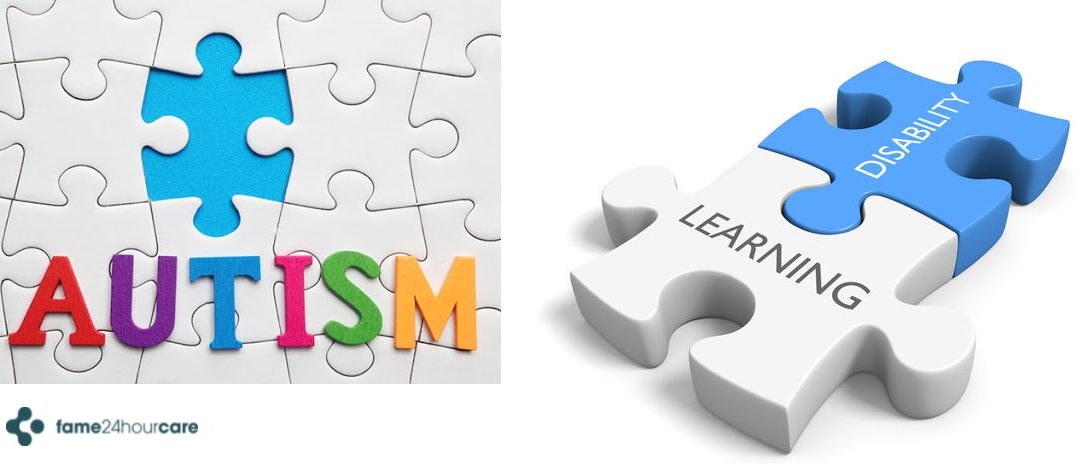Is Autism a Learning Disability?
Autism spectrum disorder (ASD) is not a learning disability, but it can affect learning — in part because autism can affect language skills, both when listening and speaking.
The term “learning disability” is an umbrella term encompassing a number of different problems with learning — most often in reading, writing, math, and problem-solving. Learning disabilities cause people to struggle when making connections between different pieces of incoming information, and when working to comprehend and organize that information, according to Understood.org. Autism and learning disabilities can occur together, but they are distinct from one another. They can also be exclusive — that is, you can have one without the other.
What Are the Symptoms of Autism Spectrum Disorder?
ASD is a neurodevelopment disorder that affects how people process certain types of information. The main symptoms are:
- difficulty with social interactions
- engaging in repetitive or ritualistic behaviors
- obsessions with certain topics of interest
Individuals with ASD may share some symptoms in common, such as difficulty in social interactions and repetitive behaviors. But because it is a spectrum disorder, these symptoms can range from mild to severe. Everyone experiences ASD differently. Some children with autism have speech or intellectual delays; some do not. Some may have average or above-average IQs. Some may be high-functioning and others may have a severe disability.
What Is a Learning Disability?
A learning disability is a neurological condition that interferes with how someone learns. It has nothing to do with intelligence, motivation, or poor parenting. It is a difference in how information is received and processed in the brain.
Some different types of learning disabilities include:
- Dyslexia is a language-based learning disability. Individuals with dyslexia may have trouble with letter and word recognition, understanding words and ideas, reading speed and fluency, and general vocabulary.
- Dyscalculia is a number-based learning disability. People with dyscalculia may struggle with recalling sequences of numbers, calculating using math functions, organization of numbers, operation signs, number facts, counting, and telling time.
- Dysgraphia is a writing-based learning disability. Individuals with dysgraphia may have problems with neatness when writing, illegible handwriting, copying letters and words, spelling, and organizing their thoughts on paper.
Auditory or visual processing disorders cause problems in understanding language that is heard or seen. With auditory processing disorder, you may have difficulty distinguishing subtle differences in sounds and speaking individual sounds within words. With visual processing disorder you may miss subtle differences in shapes, such as interchanging m and n. You may also reverse letters and numbers and have poor hand-eye coordination.
Nonverbal learning disorders (NLD) cause problems in distinguishing nonverbal language, such as tone of voice, facial expressions, gestures, and body language. There also may be difficulty with motor coordination and memory recall. Children with NLD are sometimes clumsy and can lack awareness of personal boundaries.
How Do the Symptoms of ASD and LD Overlap?
ASD and learning disabilities share some common characteristics:
- Both are lifelong conditions
- Neither has a cure
- Both can significantly impact a person’s life
- Early detection and intervention is important in both
- Sensory processing issues, emotional dysregulation (meltdowns), and trouble with social skills are common in ASD and all learning disabilities
These and other overlapping symptoms can make both ASD and LDs difficult to diagnose:
- ASD, social communication disorder, ADHD, and receptive language learning disabilities may all include trouble reading non-verbal cues, including determining other people’s feelings based on facial expressions. A person with any one of these conditions may be a literal thinker who often does not understand puns, riddles, sarcasm, and figures of speech.
- ASD and ADHD both share difficulties with executive function, including organization, time management, problem solving, and emotional dysregulation.
- ASD, ADHD, and sensory processing disorders all include sensory issues. People with sensory issues may either seek out or avoid sensory input.
- ASD, dyspraxia, dysgraphia, and sensory processing disorders can all cause motor skill problems, clumsiness, and poor handwriting.
- ASD, language-based learning disabilities, and nonverbal learning disabilities can all make it difficult to verbally express yourself, follow conversations, and speak at an appropriate volume and/or inflection.
Because of these overlapping symptoms, a thorough evaluation and accurate diagnosis are both important. Strategies and interventions differ based on the condition. Some solutions that work well with learning disabilities may not work for autism, and vice versa according to Understood.org. A developmental-behavioral paediatrician can help distinguish between the different conditions and work with you to create a treatment and intervention plan.
Culled from Attitudemag
For Home Care and Temporary health care services needs, contact us on;
Phone: 01473345434
Email: admin@fame24hourcare.com
Facebook: /Fame24care

